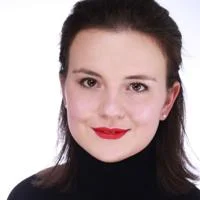Darlyn Buchwitz

Alumni in Focus

Darlyn Buchwitz
Class of 2019, MSc EU Politics
Election Campaign Manager for CDU Deutschland
I quickly discovered the advantages of having studied at the LSE when it came to tackling new challenges in a fast-paced working environment...
When I got my admission to the European Institute’s MSc in EU politics, I was expecting a vibrant, multicultural, and exceptionally bright community. Having graduated in 2019, I am proud to say that I did not only find that community within the EI, but I became a part of it.
During my time at LSE, I was constantly surrounded by the best academics in their field. I was challenged in my positions and beliefs by inspirational fellow students, and even had the opportunity to use the LSE's parliamentary internship scheme to fulfil a long-standing ambition to work in the House of Commons. While my course offered me an extensive insight into the workings of the European Union and the many challenges it faces today, my work in Parliament complemented my academic interest in Brexit and UK politics more generally. For this reason, it is fair to say that LSE could not have provided me with a better framework to write my dissertation on the institutional implications of Brexit, while also giving me a front-row seat to one of the most vital, and at times bizarre, political debates in UK history.
Even before graduation, I joined the German government relations team of an international energy company. Working in a fast-paced environment, I quickly discovered the advantages of having studied at LSE, when it came to assessing information within very short time. With a background in EU politics, I also covered the German Council presidency and the Brexit negotiations.
However, February 2021 marked the start of another exciting opportunity for me: I was offered to join the German Christian Democrat’s national campaign team, where I currently work on setting up our election campaign framework, and will go on to coach candidates on and assist them with their individual campaigns. Needless to say, that any skill that improves your time management, your ability to formulate succinctly or your analytical skills is an enormous asset. I am grateful that LSE did not only provide me with a very strong foundation in all those skills, but also made me even more curious to understand the causes of things. This is the reason why I joined forces with a former LSE friend and classmate to found and lead Polis Analysis, a provider of succinct analysis of European and global political developments that aims to tackle fake news by providing high-quality information to everyone. One year into our journey, we have already represented Polis at multiple events, and have established a team of researchers and analysts who are based in London, Brussels, Berlin, Paris, Rome, Washington D.C., Abu Dhabi and Macau.
My application for a Master's degree at the LSE European Institute was, without doubt, one of the best decisions I have made so far. I was able to take full advantage of LSE´s location in the heart of London during one of the most polarised times in UK politics, and am happy that LSE has taught me how to give back once I graduated.